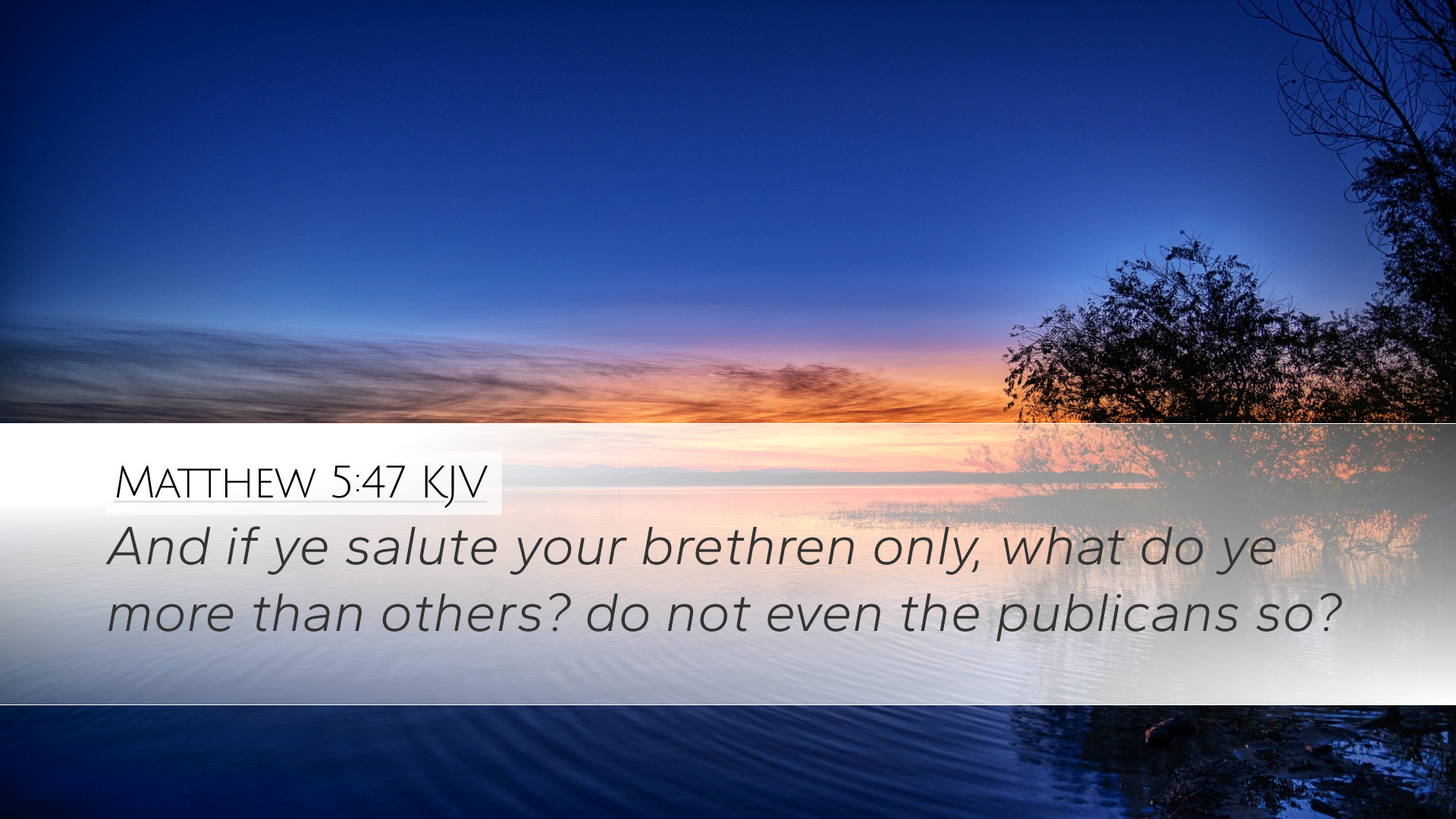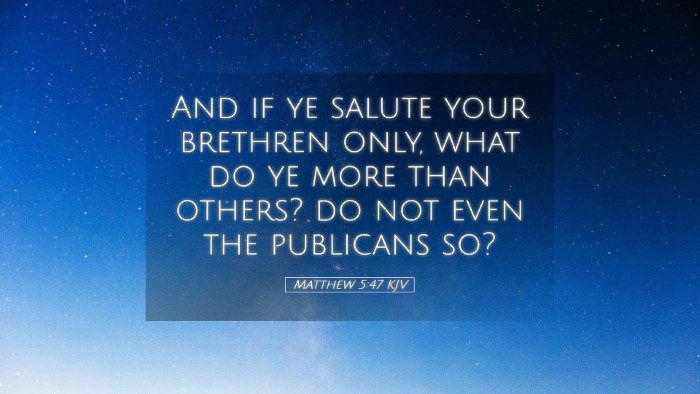Commentary on Matthew 5:47
Verse: "And if ye salute your brethren only, what do ye more than others? do not even the publicans so?"
Introduction
This verse is part of the Sermon on the Mount, where Jesus presents the standards of the Kingdom of Heaven. It emphasizes the need for a greater righteousness that surpasses that of the scribes and Pharisees. In this specific verse, Jesus challenges His followers to reflect on their relationships and the nature of their love and behavior towards others.
Exegesis of Matthew 5:47
1. Salutation Defined: Jesus uses the act of salutation or greeting as a benchmark for proper interpersonal relationships. A salutation, while seemingly simple, holds deeper implications about the nature of social interactions within the community.
2. Exclusivity of Greetings: The phrase "your brethren only" points to a tendency to show favoritism or a closed circle of interaction. Jesus challenges His followers to examine if their kindness and greetings extend only to those they are comfortable with or share common ground.
Commentary Insights
Matthew Henry's Commentary
Henry notes that the outward act of greeting is superficial if not matched by genuine love. He emphasizes that doing good should not be reserved solely for those with whom we are familiar. True Christian love should extend beyond boundaries, promoting inclusivity and the breaking down of social barriers.
Albert Barnes' Notes
Barnes discusses the use of "publicans," referring to tax collectors, who were often despised by the Jewish community. He articulates that even they, known for their selfishness, engage in similar actions. The implication is clear: to greet or love only those we know is beneath the standard of Christ's teachings. This verse is a call to emulate the character of Christ, who reached out to sinners and outcasts.
Adam Clarke's Commentary
Clarke adds that the term “salute” implies a meaningful recognition, suggesting that if one only greets those who reciprocate, then their actions are no different from non-believers. He argues that true Christians should extend kindness beyond personal circles, bearing witness to the transformative nature of the Gospel in their lives, challenging them to exhibit love indiscriminately.
Theological Reflections
This verse exposes a critical aspect of Christian ethics—the call to authentic love. It serves as a practical application of the command to love one’s neighbor, which is foundational to Jesus’ teaching throughout the Gospels. The requirement to love universally reflects God’s love, which is extended to all humanity regardless of their status or deeds.
Ethical Implications
The ethical implications are profound. Believers are called to evaluate their interpersonal dynamics—considering whether their relationships reflect a Kingdom of Heaven perspective. This involves identifying biases and engaging with those outside of their immediate circles, thus embodying the radical inclusivity of Christ’s message.
Pastoral Applications
- Emphasize Inclusivity: Pastors should encourage their congregants to break boundaries of social norms by integrating with diverse, perhaps less-favored, members within and outside the church.
- Modeling Christ's Love: Pastors are to model interactions that align with Jesus’ standards, thereby teaching congregants the importance of loving without discrimination.
- Addressing Bias: Church communities can engage in discussions regarding inherent biases, promoting actions that reflect the love of Christ.
Conclusion
Matthew 5:47 stands as a profound challenge to believers, calling for a radical transformation in how they view and interact with others. It serves as a reminder that genuine encounters with others should transcend mere social niceties into the realm of Christian love, reflective of God's grace. This rich commentary from notable theologians provides a comprehensive perspective that enriches the understanding of this vital verse.


